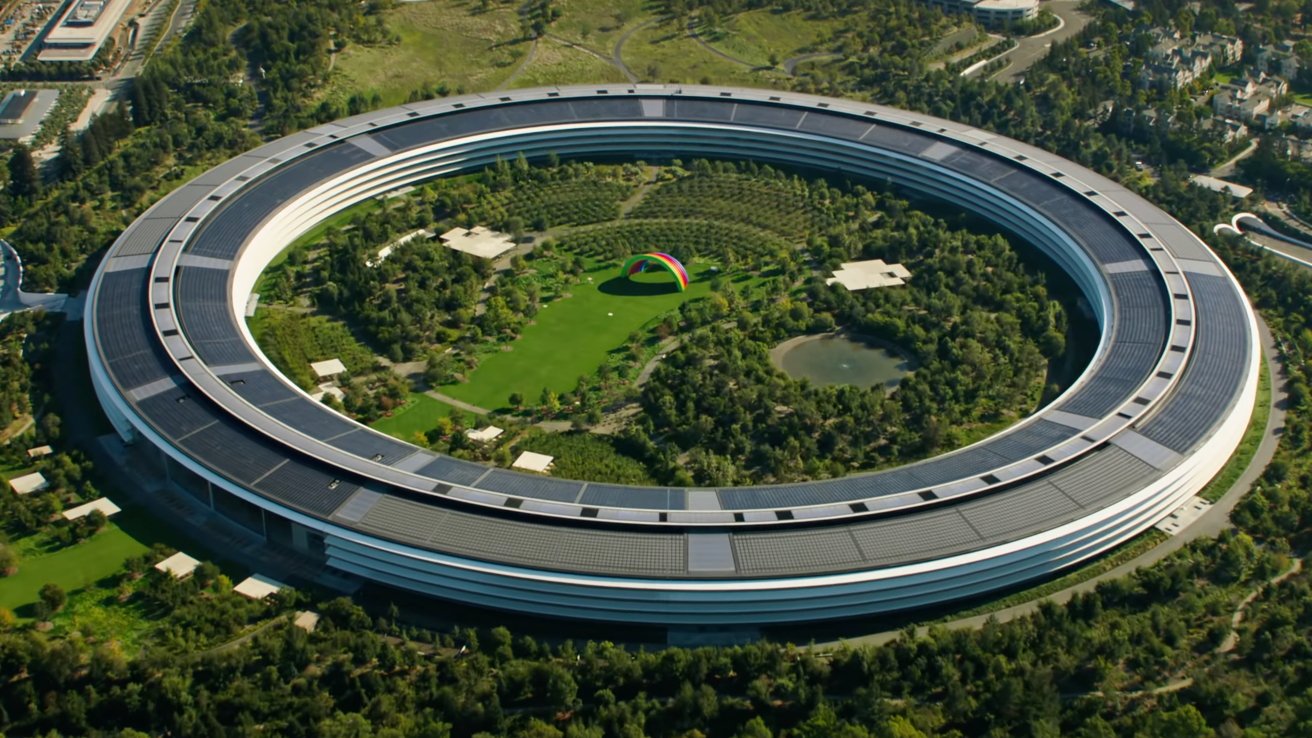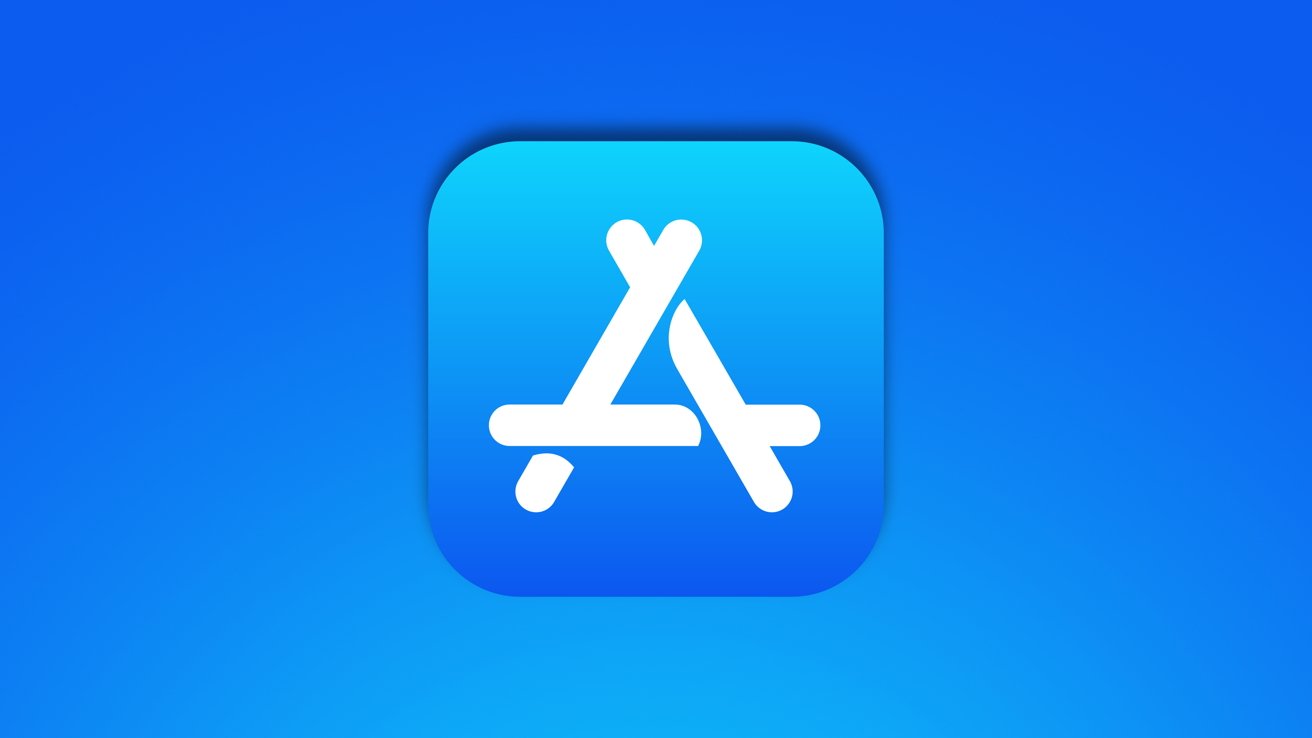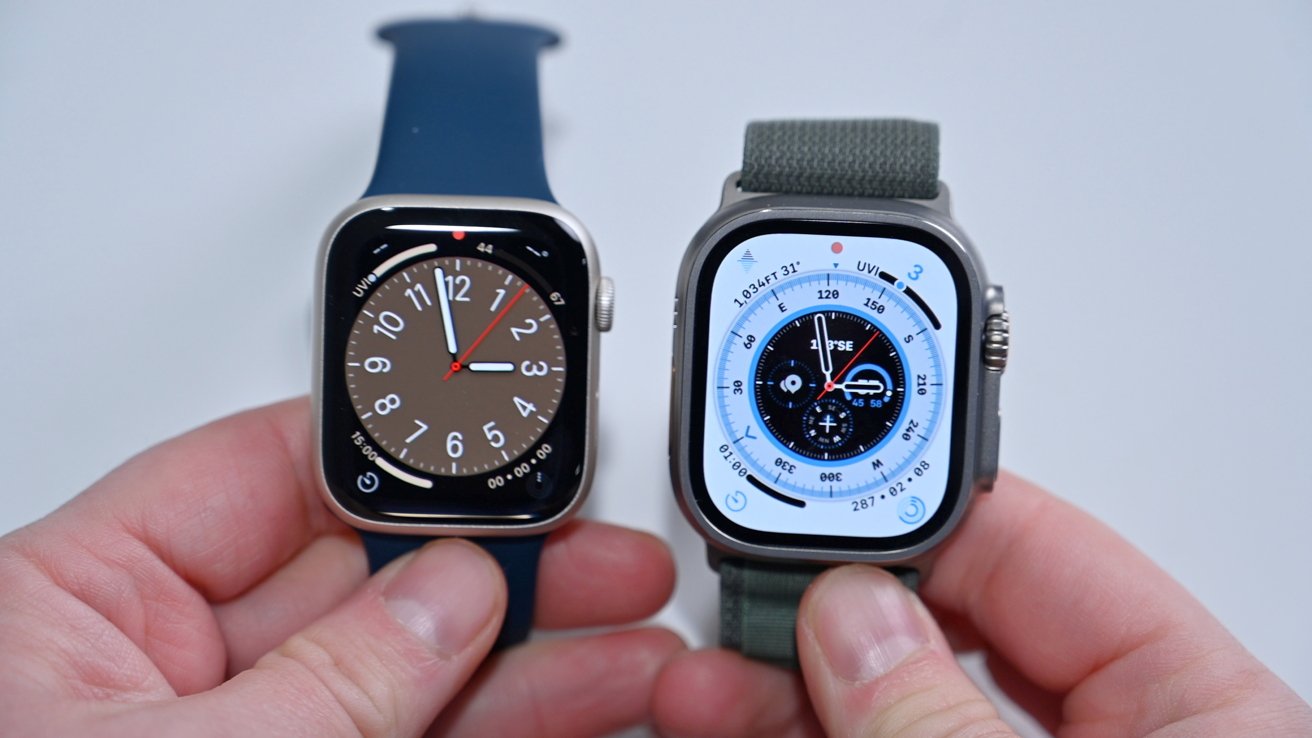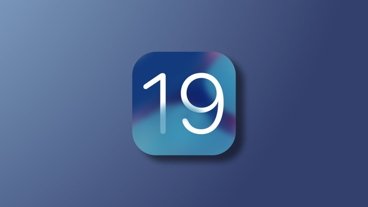The US Department of Justice claims Apple has violated antitrust law on multiple fronts — and Apple has fired back by refuting every claim made in the lawsuit.
After years of promising a lawsuit, the US Department of Justice has finally brought an antitrust suit against Apple. Nearly a week of pundits and analysts have dissected the claims, and now Apple has weighed in publicly.
The DOJ lawsuit accuses Apple of violating section two of the Sherman Antitrust Act in five ways. In a statement shared with AppleInsider, Apple has refuted each of the claims, stating they are either based on outdated information or misrepresentations of the company's business model.
First, Apple takes issue with how the lawsuit defines Apple's market share as exceeding 65% in the US based on revenue. When based on unit sales, Apple is less than half the US market.
Here's how the primary claims and Apple's responses to each break down.
On contracts and commissions
The DOJ claims Apple imposes contractual restrictions and fees that limit features and functionality that developers can offer iPhone users. Plus, Apple selectively restricts which APIs developers have access to, degrading non-Apple app functionality.
Apple responded by stating that the claim was misleading. Any rules or limitations that are in place exist to protect user privacy, security, and experience. What developers do outside of Apple's platforms isn't part of the contract.
The DOJ's issue with Apple's 30% commission doesn't mention that 85% of developers don't pay any commission, and a vast majority are eligible for a reduced 15% commission. Apple's commission has been tested in court before by Epic, and Apple won on that front.
On restrictions applied to super apps
Whatever the DOJ might say in its lawsuit, Apple says it has never stopped a so-called "super app" from existing. It provided examples of super apps that thrive on iOS today, such as Facebook, WeChat, and Line.
Until the DOJ makes its case outside of the initial filing, it won't be clear why it called out super apps specifically.
On cloud streaming services
Apple says streaming game services have always been allowed on the App Store. The company has even made changes to its guidelines to further promote game streaming.
The rule changes may have arrived too late for Xbox to care, but Microsoft choosing to take advantage of the feature isn't a problem for the DOJ's antitrust case.
On excluding cross-platform messaging apps
The DOJ is concerned that SMS being only available in Apple's Messages app and not available in third-party apps is an anticompetitive move on Apple's part. However, Apple has no data that shows users desire SMS elsewhere, and it's not a feature used by popular platforms on Android.
For example, WhatsApp doesn't offer SMS and Signal is dropping SMS support on Android.
Further, SMS limitations like lack of encryption and tiny file sizes aren't something Apple invented. It is inherent to SMS, but a new fallback universal option called RCS is coming to iOS which will be better for Android to iPhone communications.
On diminishing non-Apple smartwatch function
For Apple to offer wide support for any third-party smartwatch would require the company to account for every model, operating system, and more to allow interoperability. The DOJ's claim that Apple restricts the functionality of non-Apple smartwatches relies on it being anticompetitive rather than technically non-feasible.
The fitness bands and smart watches that do work with iPhones today gain access using Apple-made APIs. To force users to abandon these products in favor of Apple Watch wouldn't make good business sense.
On limiting digital wallets
The technology surrounding NFC, the Secure Element, and Apple Wallet exist to promote ease of use, safety, and security for the customer. Third parties are able to take advantage of the technologies via APIs but cannot gain direct access to the NFC technology.
Apple claims these aren't anticompetitive measures but a result of how the technology is implemented to protect the user. Third parties get access to tap-to-pay via Apple Wallet, and if developers want users to make contactless payments in an app, like Walmart Pay, there are APIs for that as well.
On switching to Android
Whether it's due to iMessage lock-in or features only available on iPhone, Apple argues that its competitive advantages don't keep people from switching to Android. In fact, Apple makes it easy to transfer data from an iPhone to an Android device.
The DOJ claims Apple locks customers in with anticompetitive tactics. Apple offers a simple counter — perhaps the customers just love Apple products.
Finally, the DOJ compared Apple to Microsoft. There's a lot wrong with this comparison, but Apple leans on the market share aspect, as the company has about 20% of the global smartphone market share by units.
The DOJ antitrust lawsuit has only just been filed. Expect this case and its appeals to last into the next decade if previous big cases are an example.
 Wesley Hilliard
Wesley Hilliard










-m.jpg)






 Amber Neely
Amber Neely

 Malcolm Owen
Malcolm Owen
 William Gallagher
William Gallagher

 Christine McKee
Christine McKee





-m.jpg)



43 Comments
i don’t see a link in this article to where Apple made these comments. perhaps someone can point it out to me.
I am delighted to hear all of this, and wouldn't want to exist in a world without Apple's computers, devices or ecosystem.
Weird. I didn’t know the DOJ lived in own little world and calculates market share based on revenue.
"
So, we are to assume the claim, at its core, is correct. If it weren't, Apple would have said outright it was wrong.
"
What happens in one trial isn't necessarily relevant to what can happen in another.
That 85% don't pay anything is utterly irrelevant. The point is that the remaining share is enough to generate billions upon billions in revenues because there is literally no competition allowed. Everything in that other group goes to Apple because alternative stores are not allowed to exist.
The same applies to the 'reduced' 15%' which only ever came into effect through regulatory scrutiny and complaints. Without that Apple wouldn't have conceded anything.
"
Regardless, the point remains and far worse IMO, is how Apple hid 'SMS' within its app. I lost count of the amount of times I had to tell users that what they were sending to Android users was in fact an SMS with all its limitations. Save for a one-off message which didn't even state the words 'SMS' or anything similar, and a warning that the message could incur extra costs. The SMS app should have been separate from iMessage.
"
IMO, third party watches are crippled from the get-go by OS limitations which seem to make it necessary for an app from the watch manufacturer to be running at all times to gain a half decent functionality. It will be interesting to see what watch manufacturers say to this.
NFC.
"
This is utter hogwash. The technology is implemented specifically to eliminate competition. Well, it was. It seems that within the EU that is going to change now (again, due to regulatory pressures).
Although people here are at a loss to understand the reasons behind the DMA/DSA, the US, and other markets, could well follow suit.
Here, in the EU the underlying situation is nothing new. Prior to this, the telecoms industry and the banking sector were also forced to open up with interoperability requirements to critical infrastructure that have been working well for years and more changes come to market regularly. Recently money transfers were required to become 'instant', for example.
NFC hardware/software combos (with secure enclave and TEE access) have not been an issue on phones that carry those elements. The banks wouldn't support that if security were an issue.
The reality is that an Android phone can securely support NFC/Wallet transactions from multiple vendors.
My phone can support Google Pay, Huawei Pay, BBVA Pay and even, theoretically at least, even Apple Pay. An iPhone has only supported Apple Pay, and eliminated competition by simply not allowing it to exist. That is is because there are revenues involved and Apple takes a cut from every single operation and wants the whole pie to itself.
I wouldn't say the case against Apple is going to be a walkover for Apple. We'll have to wait and see and perhaps what will be more interesting are the breadcrumbs of information relative to internal communications that might drop along the way.